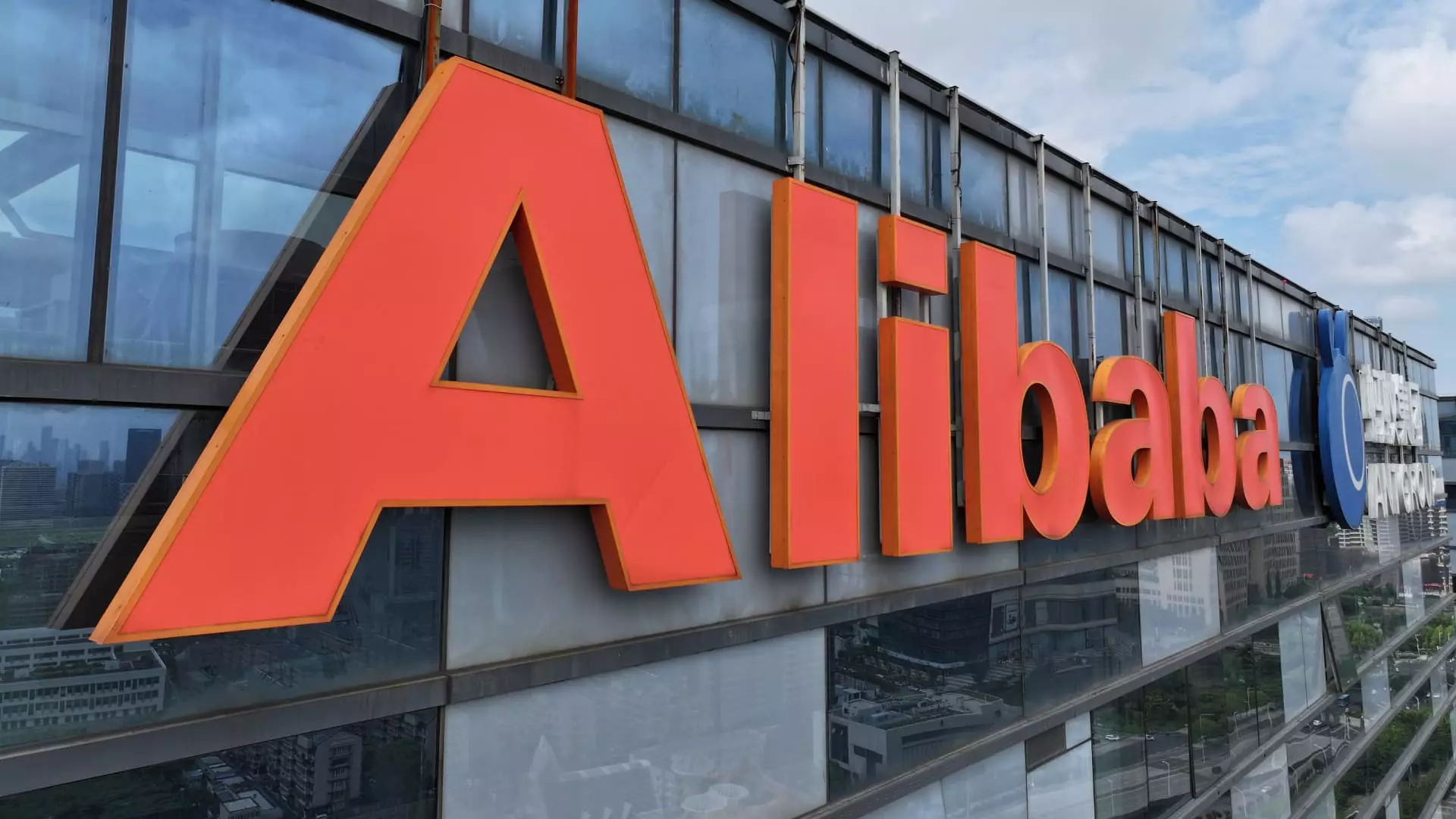In a significant turnaround, Alibaba Group has recently concluded a rigorous three-year regulatory rectification process, moving past the shadows of a hefty antitrust fine imposed on the company in 2021. This journey is emblematic of the challenges faced by major tech firms in China amidst tightening regulatory frameworks. The State Administration for Market Regulation (SAMR) declared the end of this corrective phase. In light of this announcement, Alibaba’s shares experienced a modest rise, indicating investors’ optimism regarding the company’s compliance and future prospects.
The Antitrust Fine and Its Implications
The catalyst for Alibaba’s regulatory reevaluation was a monumental fine of 18.23 billion yuan (approximately $2.6 billion) levied by SAMR in 2021. This penalty was a part of a broader investigation into monopolistic behaviors that the company had allegedly engaged in. One of the primary issues was Alibaba’s “choose one” policy, which forced merchants to select between either Alibaba’s main platform or its rival, thereby limiting competition and creating an unfair market environment. Such practices allowed Alibaba to entrench its market position, a reality that regulators were keen to rectify for the wellbeing of the broader e-commerce ecosystem.
Over the past three years, the SAMR closely monitored Alibaba as it undertook necessary compliance measures to adhere to antitrust regulations. In its recent statement, SAMR asserted that this rectification effort has yielded “good results,” crucially noting that Alibaba has ceased its monopolistic behaviors. This achievement marks a pivotal moment for the company, which had been under intense scrutiny not only from regulators but also from public opinion that was increasingly wary of the influence of major tech firms in China.
Investors have begun to view this successful navigation through regulatory compliance as a fresh start for Alibaba. Analysts from Jefferies have pointed out that this augurs well for the company, enhancing its operational integrity and establishing a solid foundation for renewed growth in the technology sector.
The Evolution of Regulatory Attitudes Towards Tech Firms
The conclusion of Alibaba’s rectification process comes against the backdrop of a broader shift in the Chinese regulatory landscape. Following a stringent crackdown on tech firms that began in late 2020, there appears to be a gradual easing in the regulators’ approach towards the tech industry. This shift is significant because it underscores the Chinese government’s recognition of the vital role that these firms play in the economy, coupled with a desire to cultivate a more sustainable operational environment.
Despite this positive development, it is crucial to recognize that regulatory scrutiny will remain a constant for Alibaba and its peers. The market will likely continue to see cautious oversight as the government balances fostering innovation with maintaining competitive fairness.
In recent months, Alibaba’s performance in the stock market has been tumultuous. The company witnessed a staggering decline in valuation, plummeting more than 70% since its peak in 2020. Contributing factors included a cautious consumer base, heightened competition in the domestic e-commerce market, and the overarching shadow of regulatory concerns. Nevertheless, recent quarterly results indicate a potential rebound, particularly in its cloud computing sector, where growth has started to accelerate.
This resurgence is vital not just for Alibaba but for the entire technology and e-commerce ecosystem in China, which has faced significant challenges due to regulatory changes and evolving consumer behaviors. Moving forward, Alibaba must not only navigate compliance but also innovate and adapt to an increasingly crowded marketplace.
As Alibaba exits this challenging phase marked by regulatory oversight, the company now faces the crossroads of compliance and competitive innovation. With the lessons learned from this rectification journey, Alibaba has an opportunity to regain trust with consumers, investors, and regulators alike. Ultimately, the ability to adapt while fostering growth will determine whether Alibaba can reclaim its stature as a preeminent player within China’s bustling tech landscape. The journey continues, but the path ahead appears hopeful as the company strives to redefine its role in an ever-changing market.

